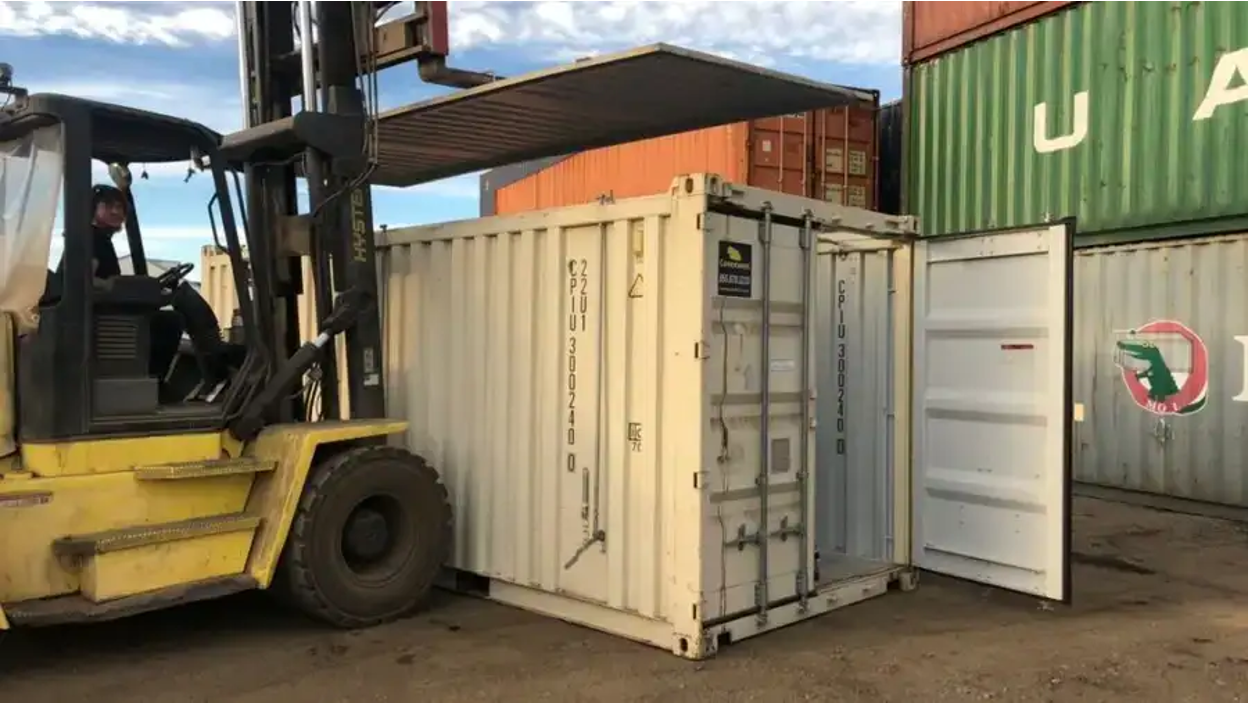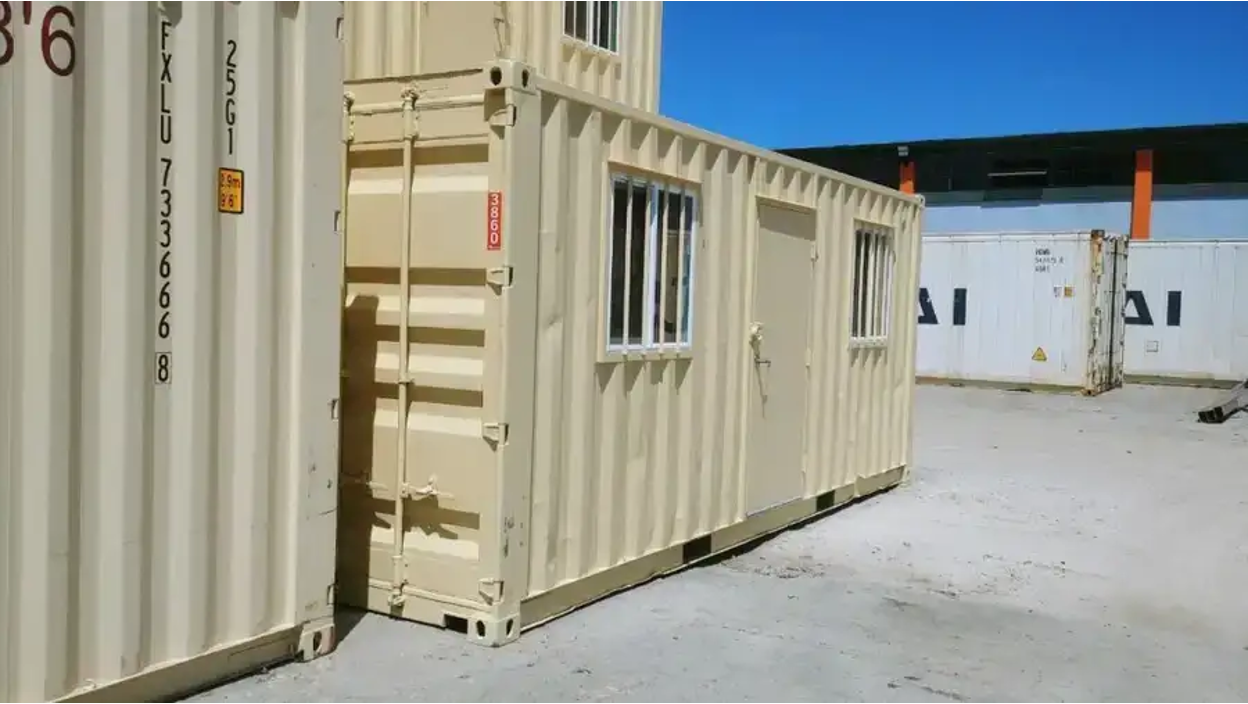Oregon Shipping Container Zoning Laws, Permits & Building Code Requirements
Get a quoteOregon Shipping Container Zoning Law, Permit & Building Code Guide
Key Takeaways
- Oregon zoning laws vary significantly by city, so check your local regulations before proceeding.
- Obtaining a permit for shipping containers requires complying with local building codes and safety standards.
- Engaging with local authorities can streamline the permit process and help you avoid common pitfalls.
- At Conexwest, we provide a variety of shipping containers, and can also help you with permits.
Shipping Container Zoning Laws, Permits, & Building Code Requirements In Oregon
Zoning Laws
In Oregon, zoning laws decide what can go where. For shipping containers, here’s what you need to keep in mind:
- Zoning Classification: Properties are classified into various zones (residential, commercial, industrial), each with its own regulations and level of strictness regarding container use.
- Setback Requirements: Containers must often be set back a certain distance from property lines for safety and privacy.
- Height Restrictions: Local regulations may limit the height of containers to maintain neighborhood aesthetics.
- Design Standards: Some municipalities require containers to be modified to blend in with surrounding structures.
Permits
Permits are a big part of the process, especially if you want a container to be a permanent structure. Here’s what to keep in mind:
- Building Permits: Essential if you’re converting a container into a living space or making major modifications.
- Temporary Use Permits: Handy for short-term uses, like storage at a construction site or seasonal setups.
- Specific Situations: For example, if you want to use a container as a backyard tool shed, you might not need a permit in some areas, but other places could require one. It’s always good to check with your local authorities.
Building Codes
If you’re converting a container into a home, you’ll need to meet building codes like the International Building Code (IBC) or International Residential Code (IRC) to make sure everything is safe and up to standard.
- Structural Requirements: Your container must be strong, durable, and safe to use.
- Utilities: Installing electricity or plumbing? You’ll probably need separate permits for that.
Read More: Guide to Build a Shipping Container Shop
Examples from Various Municipalities in Oregon
Here, cargo containers must adhere to specific zoning codes that classify them based on their use. For instance:
- Containers used as accessory structures to residential properties fall under Group U occupancies.
- Development regulations may restrict where containers can be placed based on setbacks and coverage limits.
- Containers cannot be used for self-service storage without special permissions4.
Here, containers associated with residential construction must:
- Be removed within 60 days after final inspection approval.
- Not be stacked and must fit entirely on a hard surface like a driveway.
- For non-residential uses, containers require a Temporary Use Permit and must adhere to visibility and placement restrictions.
Conexwest, a leader in shipping and storage solutions based in Northern California, offers new, used, and refurbished containers from 10ft to 45ft, with fast delivery within 3–7 days and container fabrication options like adding shelves and locks. We serve over 10,000 customers nationwide, including prestigious clients like the U.S. Navy and Google. As an ISO 9001 and AWS-certified company, we ensure top quality and competitive pricing. |
Tips For Complying With Oregon’s Regulations

We have shipping containers in sizes from 10 to 45 ft.
1. Do Your Homework
- Know Your Zone: Check if your property is classified as residential, commercial, or something else. This determines what you can and can’t do.
- Dig into Local Rules: Visit your city or county’s planning office (or their website) to find specific guidelines for shipping containers in your area.
2. Plan Utilities Ahead of Time
- Connections Matter: If you’re adding water, electricity, or other utilities to your shipping container, check what’s required and apply for any additional permits.
3. Keep It Looking Good
- Neighborhood Aesthetics: Some areas have rules about how your container should look to blend in. Be ready to make design tweaks if needed.
- Landscaping: Think about adding plants or fencing to reduce the visual impact - especially if required by local rules.
4. Check Homeowner Association (HOA) Rules
- Don’t Skip the HOA: If your property comes under HOA, their rules might be stricter than local zoning laws. Always check first.
5. Keep Your Paperwork Handy
- Stay Organized: Keep all your permits, approvals, and inspection records in one place. They’ll come in handy if questions arise later.
6. Call in the Pros
- Choose the Best: Buying shipping containers from experts (like us) who know the local rules can save you a ton of time and stress.
Read More: How Much Does a Shipping Container Office Cost
7. Stay Updated
- Watch for Changes: Zoning laws and building codes can change. Keep tabs on updates by checking in with local officials now and then.
Choose Conexwest For Your Shipping Container Needs

We even provide specialized units like mobile office, flat-rack, and hazmat containers.
At Conexwest, we are your go-to supplier for everything related to shipping and storage containers! With new, used, or refurbished options and sizes ranging from 10 to 45 feet, we cater to a variety of needs and budgets. And we’re not just about sales, either - we also provide rentals, custom fabrication, and reliable delivery services.
Why Choose Conexwest
- Customization Options: Need shelves? Locks? Ventilation? We’ll make sure your container works exactly how you need it to.
- Quick Delivery: No waiting around - we deliver in as little as 3-7 days, so your container arrives when you need it.
- Expert Support: Our knowledgeable team will guide you every step of the way, from picking the right container to maintaining compliance with local regulations.
- Trusted by Thousands: With over 10,000 customers nationwide - including big names like the U.S. Navy and Google - you know we’re a name you can rely on.
Frequently Asked Questions (FAQs)
- Can I use a shipping container as a permanent home?
In many areas of Oregon, you can use shipping containers as permanent homes, but you must comply with local building codes and zoning regulations.
- What are common restrictions for using shipping containers?
Common restrictions include:
- Containers may not be stacked.
- They must not be used for certain activities like workshops or living spaces without proper permits.
- Setback requirements from property lines.
- What are the common requirements for placing a shipping container?
Common requirements include obtaining a building permit, maintaining compliance with local zoning laws, adhering to HOA rules if applicable, and meeting building codes related to structural integrity and safety.
- What happens if I don’t comply with the laws?
Non-compliance with laws can result in fines, legal issues, and potential removal of the container from your property.
- What is the warranty on containers provided by you?
All our containers are secured by a warranty. Our new ISO shipping containers come with a 10-year warranty, while used cargo-worthy containers have a 5-year warranty. Both warranties cover defects in material or workmanship under normal use.
